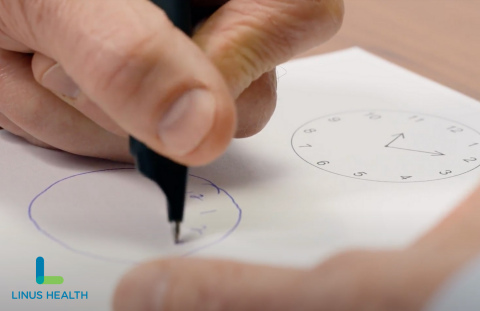You might think it odd if during a session with your doctor you’re simply asked to draw a clock showing a specified time. Yet the Clock Drawing Test, as it’s known, is a tool used for more than 50 years to screen for signs of dementia including Alzheimer's disease.
Starting in 2005, MIT professor Randall Davis, who works in knowledge-based systems and human-computer interaction at MIT’s Computer Science and Artificial Intelligence Laboratory (CSAIL), and Dana Penney, the director of neuropsychology in neurology at Lahey Hospital and Medical Center, saw the clock through a different lens: a digitized one.
Davis and Penney came up with the idea of having people take the test using a commercially available digitizing pen that provides time-stamped coordinates of the pen’s location on the page. This captures the entire process of task performance, rather than solely the end-product -- the drawing.
The software they created analyzes both the correctness of the clock face and hands, and features of the drawing process, including movement and spatial patterns, revealing subtle signs of cognitive impairment. The freeform nature of the drawing task elicits varied cognitive processes within a short amount of time, allowing the test to maximize data collection about multiple domains of an individual’s cognitive health.
Analyzing this data using a combination of clinical insight and machine learning, they were able to produce a wealth of insight into more nuanced evaluations of memory, language, spatial reasoning, and executive functions. With data from over a 10-year study with roughly 4,000 subjects, they created predictive models that were more accurate at detecting impairment than methods routinely used by clinicians.
Now, their Digital Clock Drawing Test has been selected as one of Time Magazine's 100 best inventions of 2021. The program was FDA cleared, and is licensed to startup Linus Health.
“The earlier you can detect an illness, the earlier you can treat and make lifestyle changes that can help,” said Davis in 2017. “There are drugs that can slow down the progress of the disease. So the earlier you start the more effective the drugs might be.”

